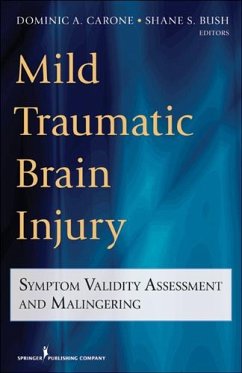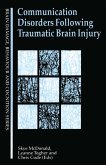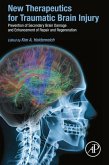This authoritative volume is the first book specifically devoted to symptom validity assessment with individuals with a known or suspected history of mild traumatic brain injury (MTBI). It brings together leading experts in MTBI, symptom validity assessment, and malingering to provide a thorough and practical guide to the challenging task of assessing the validity of patient presentations after an MTBI. The book describes techniques that can drastically alter case conceptualization, treatment, and equitable allocation of resources. In addition to covering the most important symptom validity assessment methods, this timely volume provides guidance to clinicians on professional and research issues, and information on symptom validity testing in varied populations.
The book covers MTBI assessment in such specific settings and populations as clinical, forensic, sports, children, gerontological, and military. It also addresses professional issues such as providing feedback to patients about symptom validity, ethical issues, and diagnostic schemas. Mild Traumatic Brain Injury will provide neuropsychologists, referring health care providers, courts, disability insurance companies, the military, and athletic teams/leagues with the in-depth, current information that is critical for the accurate and ethical evaluation of MTBI.
Key Features:
The book covers MTBI assessment in such specific settings and populations as clinical, forensic, sports, children, gerontological, and military. It also addresses professional issues such as providing feedback to patients about symptom validity, ethical issues, and diagnostic schemas. Mild Traumatic Brain Injury will provide neuropsychologists, referring health care providers, courts, disability insurance companies, the military, and athletic teams/leagues with the in-depth, current information that is critical for the accurate and ethical evaluation of MTBI.
Key Features:
- Provides in-depth, expert coverage of one of the most critical topics for clinical neuropsychologists
- Includes contributions from the leading authorities on both MTBI/post-concussive syndrome and malingering/symptom validity
- Covers assessment in such contexts as civil forensics, sports, military/veterans, and gerontological settings
Dieser Download kann aus rechtlichen Gründen nur mit Rechnungsadresse in A, D ausgeliefert werden.









